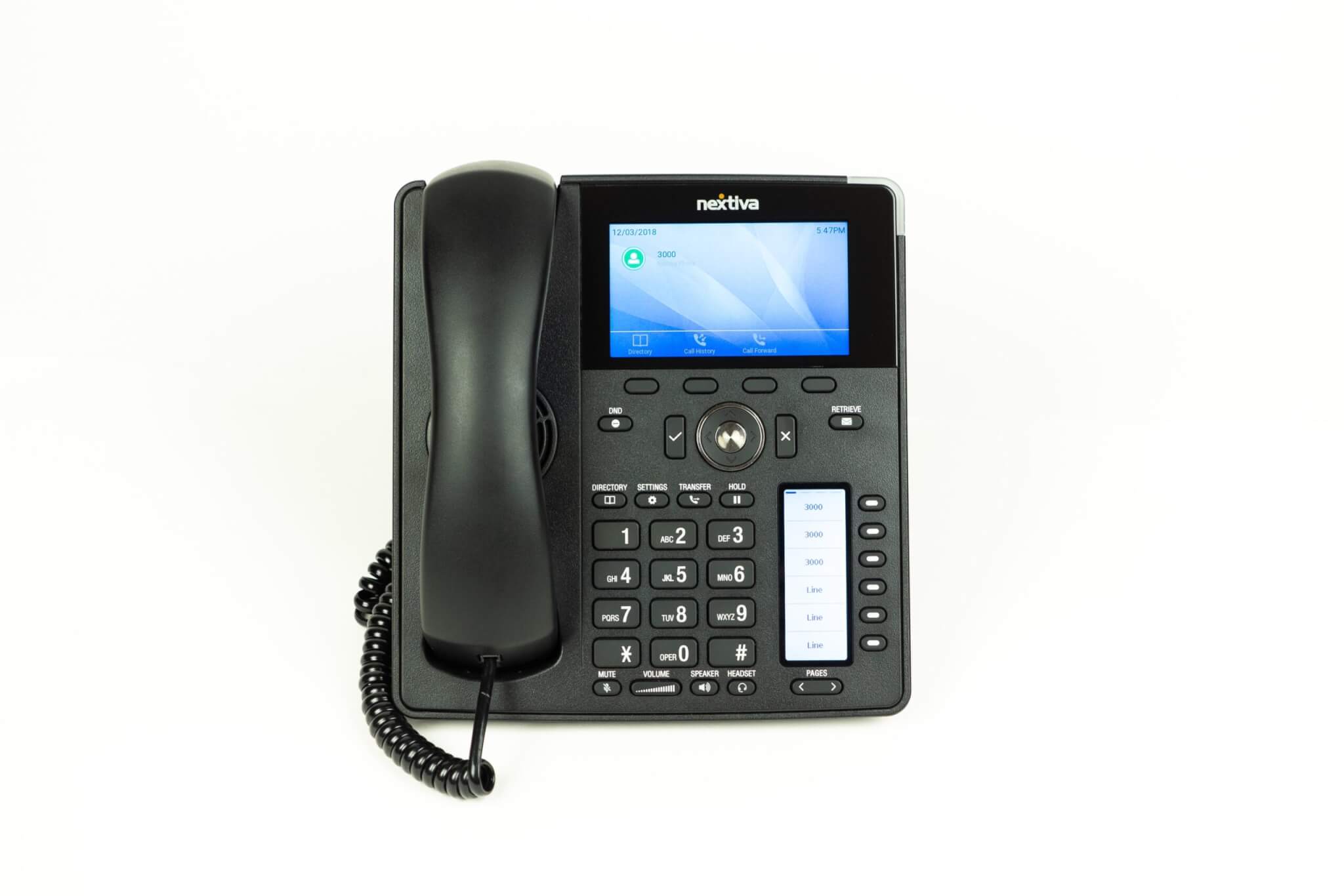Original Article Published on Mitel’s Website
You know it’s time. Your business’s phone system is a mishmash of hardware and software. Your staff are making business calls on their personal phones. And the third-party service you use for conference calls is clunky and unreliable. You also know if you’re going to grow your business, you’ve got to improve how your team communicates and collaborates. Buying new hardware isn’t in the budget and, besides, you’re worried it would have to be upgraded by the time it was installed.
Why choose a hosted VoIP phone service?
With the bandwidth and reliability of internet service today, more small and medium-sized businesses are turning to Voice over Internet Protocol (VoIP) phone services like MiCloud Connect. This unified communications solution is hosted in the cloud, giving SMBs the power and functionality that in the past only large companies could afford.
But as with any major change – especially ones involving technology – things can get confusing. Because many communications providers offer an à la carte approach to features and pricing, not spending time researching upfront can waste time and cost you more in the long run.
Hosted phone comparison — where to begin?
It’s a little like buying a new car. You know the features you like most, the “must-haves” that you’ve come to love in your present car, things like heated seats or a hands-free phone. But slide into the driver’s seat of a later model vehicle and you can be overwhelmed. Lots of new bells and whistles. How do you decide which are important, which are distracting and which just aren’t worth the money?
To start, think about where your company is now. Answer these questions and you’ll begin to hone in on the features most important to your business.
- Which features of your current system are most useful? For instance, speed dial or call forwarding?
- Who are your users? Do you have team members on the road, in the warehouse, in conference rooms, at their desks or in a contact centre?
- What are the communications needs of each of these user groups? Do they need better collaboration tools? Mobile solutions?
- What are the pain points for these user groups? Or put another way, what’s the current system not providing? If employees are using their own mobile devices or third-party apps, find out why. What do they offer that your current communications system doesn’t?
- What part of your current system do you want to keep? Most hosted phone service providers can customise solutions to sit on top of your present infrastructure. Why reinvent the wheel, or buy a new one, if you’ve got pieces that still work?
With this information in hand, you’re ready to consider all the features available with a hosted phone service. This is good because there are a lot of features. And like that new car, some you need and some you don’t.
Example #1: Law firm
Barbara is the managing partner of a law firm with over 70 lawyers in three locations. Their telecommunications system has been creaky for some time. Consequently, they’re not as customer-responsive as they need to be in a very competitive marketplace. Barbara chose these features when the firm moved to a hosted phone service.
Mobility. Attorneys and staff are on the move all the time – at client’s offices, in court or at offsite meetings. With VoIP, they can communicate seamlessly with any device that has an internet connection – smartphones, tablets, laptops or desktops. Users access the firm’s communications system via a secure, proprietary web portal. The interface is also consistent across all devices.
Conference calls. Whether they’re on audio or video, staff can easily manage conference calls with the click of a button. All participants can share screens and files. And with a quick text, they can even pull another colleague into the call.
Call recording. Another useful feature is the ability to record both individual calls and conference calls. Now, staff can easily go back over the details of any phone conversation.
Visual voicemail and email. When attorneys are running between meetings, catching up on voicemail is challenging. Now voicemails are transcribed and sent to the email box of the receiver. It’s easy to listen again to a long voicemail, forward it to another staff member or file it for future reference.
Presence management. Ever tried to hunt down a colleague when you needed a quick answer? Leaving voicemails just doesn’t do it. To really close the loop, you need to know where they are and if they’re even available. With the present technology, a receiver can notify others of their availability. Maybe they can’t answer the phone but can reply to a text or email. It all helps get an answer to the client that much faster.
Example #2: Software Start-up
Nicolas started his software business five years ago with three friends from college. Now, with almost 200 employees across three continents, it’s time to choose a telecommunications system to meet the needs of the growing company. You don’t want bumpy conference calls when that venture capitalist calls.
Like Barbara’s law firm, mobility was near the top of Nicolas’s “need to have” list of features. For too long, the company had relied on BYOD (Bring Your Own Device), but inconsistency and poor responsiveness became major issues. Here are the features Nicolas’s IT manager chose when they set up their hosted phone service.
Collaboration and teamwork. Central to the business’s success is the ability of employees to work together easily, no matter their location. As part of the new hosted phone configuration, collaboration and teamwork software help engineers in Bangalore, San Jose and Riga work on projects across time zones. This feature provides a shared workspace where team members can communicate, share files, chat, set up conference calls, track progress and assign tasks.
Call centre. Before implementing a hosted phone service, the company was losing almost 40% of customer calls. Now calls are routed to the right person the first time. Agents can communicate with customers via live chat, phone or email. The new system also enables supervisors to monitor calls in real-time and coach agents on how to improve.
Remote workers. Employees working outside the company’s main offices can now connect easily and reliably via a dedicated web portal. Using VoIP, they can respond to colleagues and customers anywhere in the world. That also means the company can recruit talent from all over the globe.
Integration with third-party software. A key feature of Nicolas’s growing company is the ability to integrate third-party applications into its communications tools, like customer relationship management (CRM) software. Call centre agents can respond to customers more effectively and sales can see real-time metrics. By integrating other applications like browsers and Microsoft Outlook, employees can make calls with one click.
Choose the right vendor. After you’ve decided which features are most important to your business, be sure to choose a vendor that can make things happen easily and within your budget. Look for these capabilities in a hosted phone provider.
Support from beginning to end. Many vendors talk about a good game when the sale is on the line. Many even do a good job during installation and training. But ask around. Is their customer support available 24/7? Via phone, live chat and email? They need to be there when your customers and employees need them most.
Industry leader. Has the vendor led the way in innovation and product development? Or has it only recently jumped on the wagon? Look into how stable the company is and how long it’s been in the communications business.
Flexible and responsive. Choosing a hosted phone service is not a “one-size-fits-all” proposition. Quite the opposite. You want a vendor who will create a solution unique to your company.
That’s what it’s all about, isn’t it? Making sure your communications investment will lead to a stronger and more successful business.
Hosted Phone Systems from Intrasource
Mitel offers a suite of hosted phone service products that will make your business the best it can be. And as a trusted partner of Mitel, Intrasource can help you achieve what you need from your business phone system.
Contact us today to find out how we can help your business improve its telecommunications.



